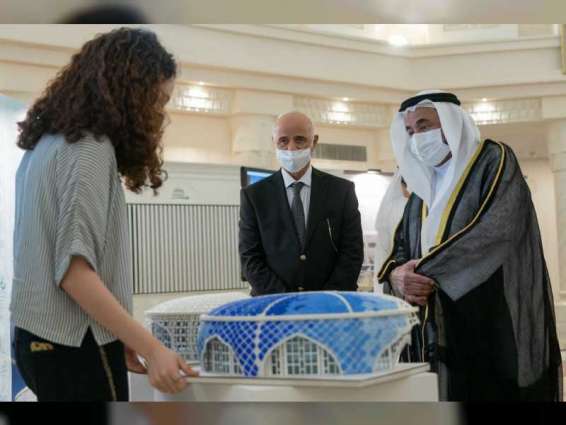SHARJAH, (Pakistan Point News - 28th Jun, 2021) H.H. Dr. Sheikh Sultan bin Muhammad Al Qasimi, Supreme Council Member and Ruler of Sharjah, Monday reviewed an exhibition showcasing innovative ideas and the master plan for the Sharjah Oasis for Technology and Innovation's main building (SOTI).
H.H. Dr. Sheikh Sultan was familiarised with the specifics of the designs created by architecture students at the University of Sharjah's Faculty of Engineering. The students presented designs that meet the oasis's objectives and directions, such as working on applied scientific research to produce new technologies and innovations by creating a conducive environment for creativity and innovation, developing knowledge-based economic projects, and forming partnerships with universities, institutions, and related sectors.
The Department of Architecture students presented 17 creative architectural concepts for the Sharjah Oasis for Technology and Innovation headquarters' general layout. The students' architectural designs were distinguished by their advanced Islamic character, which was integrated with current architectural solutions as well as technical and sustainable solutions.
The Oasis will be a centre for research, innovation, and development, with the goal of providing inspiring opportunities for society, industry, and business, advanced knowledge and skills for graduates, and pioneering applied research in the areas of community sustainability.
The formation of a centre where the governmental, industrial, academic, and community sectors converge is one of the strategic plan's aims. To promote societal and economic success, the Oasis will seek to build an integrated system for applied research that combines scientific research and industrial activities.
The Oasis will also promote the development of digital and technological products and services, with a number of centres, facilities, and improved infrastructure planned to serve scientific disciplines such as information technology, communication, artificial intelligence, robotics and related technological developments, sustainable technology, technological innovation, medical advances in devices, drugs, vaccines, procedures, and systems, as well as space science technology, remote sensing, space biology sciences, storage, and distribution of renewable energy, ensuring access to modern, reliable, sustainable, and affordable energy for all.




